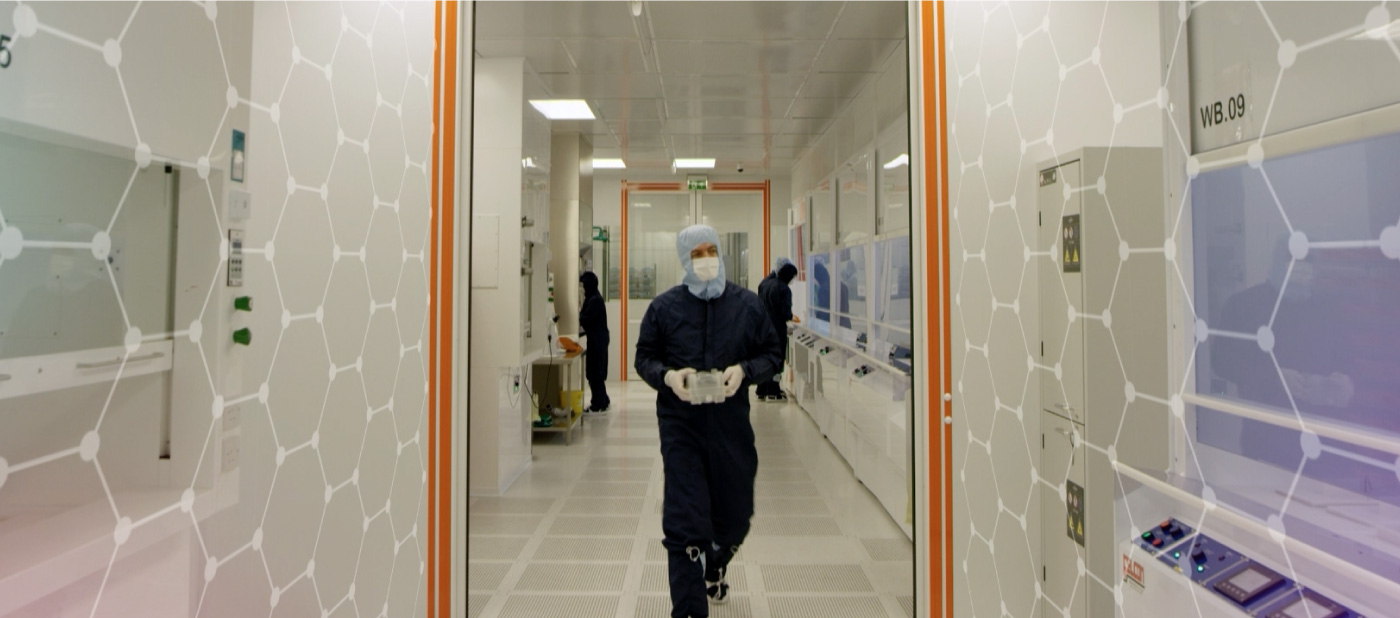In the run up to COP 26 the 2021 UN Climate Change Conference, The Henry Royce Institute (Royce) and the Institute of Materials, Minerals & Mining (IOM3) have today launched a joint report which sets out how materials science and innovation will help the UK achieve net-zero.
The document aligns into the Government’s Ten Point Plan for a green industrial revolution, the precursor to the subsequent Net Zero Strategy, which sets out how the UK will deliver on its commitment to reach net-zero emissions by 2050 and outlines measures to transition to a green and sustainable future including helping businesses and consumers to move to clean power.
The new Royce-IOM3 report highlights the importance and cross-cutting nature of materials science and demonstrates how different materials systems are applicable to each of the themes in the Government’s Ten Point Plan, as well as the applications and enabling technologies that will allow the plan to be put into action.
Nick Rimmer, Royce Head of Business Engagement at Royce said:
“Materials science and engineering will be critical in providing the solutions needed for each of the ten points in the Government’s plan. As acknowledged in the recent Innovation Strategy, the UK has strong historical strengths across materials and engineering and, as this new report notes, understanding and predicting how materials react and respond in challenging environments – for example at sea, in a nuclear reactor, or in a rapidly charging battery – is fundamental to the safe operation of many systems. Advanced materials will also help us to prolong service life and minimise resource consumption, which are becoming increasingly important considerations within our net-zero ambitions.”
IOM3 CEO, Dr Colin Church CEnv FIMMM said:
“As this report shows, materials science is a key enabler and is already contributing to our progress towards net-zero in a number of critical areas, from research into materials that will deliver major advances in energy storage, to fuel cell development to exploit hydrogen and more efficient solar cells to harvest sunlight. And for the circular economy, which cuts across everything we do in society, we need a range of new and advanced materials with a focus on sustainability, considering the full life-cycle from initial raw material extraction, through to manufacture and end-of-life reuse or recycling.”
Professor David Knowles, CEO, Henry Royce Institute added:
“I look forward to taking this report’s key message to COP 26 and to continuing our meaningful dialogue with Government partners to explore and agree on what is technically feasible and economically viable regarding materials research, development and innovation, and most importantly, what will get us to our pressing net-zero target in the shortest timeframe possible and with the greatest benefit to the UK.”
Read the Report here
Summary of the Ten Points:
- Advancing Offshore Wind
There are nearly eleven thousand wind turbines across the UK with an aim to quadruple generating capacity by 2030. New and advanced materials are needed to increase turbine efficiency, lifetime, and recycling potential. Improvements in materials design are also needed to increase the recyclability of turbines. New designs and composite components are being developed in tandem with recycling initiatives and a growing UK capability in recycling generator materials.
- Driving the Growth of Low Carbon Hydrogen
The UK has a leading position in hydrogen research but while ‘green’ hydrogen production is a proven technology there is currently no infrastructure to deliver it at scale. Commercial scale up of electrolysers and proton-exchange membranes requires the development of novel materials. Such developments are crucial to being able to use hydrogen in a variety of industrial processes, as well as making hydrogen for heating and transportation applications.
- Delivering New and Advanced Nuclear Power
The UK currently has 15 operational nuclear reactors, with a shift to new reactors planned over the coming years to replace the Advanced Gas-cooled Reactor (AGR) fleet. Many of the challenges faced by next generation nuclear – for example high temperature gas reactors (HTGRs) and Advanced Modular Reactors (AMRs) – can only be overcome by further developments in materials. Materials scientists are developing low (<200°C) and high (>200°C) temperature steels, alloys, and coatings to prevent degradation of reactor materials, as well as advanced fuels, materials for novel cooling systems, and materials that are stable under high neutron bombardment.
- Accelerating the Shift to Zero Emission Vehicles
The UK has nearly 40 million cars on the roads and the full range of vehicles must be transitioned to hybrid or electric over the coming 20 years. Materials challenges are associated with the safe delivery, storage, and use of the new fuels used for vehicles. In addition, in all stages of design, the lifetime and circularity of the materials involved must be considered. Fifty per cent of vehicle particulate matter emissions are non-exhaust sources; indeed tyres are the single biggest cause of microplastic pollution in UK waterways. New materials will be able to overcome this through new biopolymers for tyres and improved regenerative braking systems.
- 5. Green Public Transport, Cycling and Walking
Materials science will play a major role in making rail and bus services more comfortable, reliable, and sustainable. The 16,000 km UK railway network has a long history of innovation; line electrification and battery or hydrogen powered trains will bring new materials challenges. The UK’s 32,000 buses will also need to be replaced in order to meet the local infrastructure demands of a zero-emissions future. Here materials science is enabling new electric and fuel-cell engine designs with increased comfort through the elimination of engine vibrations.
- ‘Jet Zero’ and Green Ships
Aircraft lifetimes are typically several decades and so the phase out of a fleet powered by fossil fuels must be managed in a sustainable manner including the recycling of metals and materials. Sustainable synthetic fuels could act as a bridging technology, however, more development work is required before they can be scaled-up and produced in the UK. Short-haul hybrid (diesel-electric) shipping is already in service on the Isle of Wright ferry and a hydrogen powered ferry to Orkney is proposed. Materials research is enabling the synthesis, storage, and use of a range of possible fuels (methanol, ammonia, hydrogen, and LNG) and will be crucial to developing the necessary storage and refuelling infrastructure.
- Greener Buildings
Domestic heating and hot water accounts for 25% of total UK energy use. Materials science is enabling energy savings and emissions reductions across different areas of the home. In particular, caloric materials can replace refrigerants in fridges, freezers, and heat pumps, replacing less efficient and difficult to recycle halocarbon gasses. Advances in lighting materials have been cutting energy use as we move away from tungsten filament bulbs to LEDs. Developments in traditional materials, such as wood and bio-based composites also increasingly play a role in creating sustainable buildings which can self-regulate their temperatures and ‘breathe’.
- Investing in Carbon Capture, Usage and Storage (CCUS)
Carbon Capture Usage and Storage (CCUS) methodologies are promising techniques to capture CO2 either from industrial point sources or from the air to then use in the production of higher value products. Materials science is critical in supporting the scale-up and roll-out of this technology through developments in catalytic materials and membranes for efficient CO2 capture, in preventing the corrosion of transport and storage infrastructure, and for developing energy-efficient ways of creating the new range of chemical precursors at elevated pressures – as well as supporting the innovation required in other sectors to support this budding industry.
- Protecting our Natural Environment
Materials science will play a fundamental role in developing new ways to cut down on plastic waste and pollution. It will also help find better uses for the over 10 million tonnes of scrap metal produced in the UK per year and ensure that the increasingly complex devices we use are straightforward to deconstruct, reuse and recycle. Materials scientists are also developing advanced materials for agriculture including fertilisers that are not obtained from natural ore-deposit and are developing materials solutions for economically sustainable forestry to preserve the UK’s working landscapes, as well as new materials for flood and coastal defences as we adapt to a changing climate.
- Green Finance and Innovation
Whilst the finance sector will predominantly be used to fund the projects to develop and commercialise the new materials systems, it does also benefit from developments in materials science. New and advanced semiconductor and photonic materials enable the faster and more powerful computation required to power banking, trading, and communication platforms. In the future, new materials will enable quantum computing to further enhance transaction handling and improve security.
About IOM3
The Institute of Materials, Minerals & Mining (IOM3) is a major UK science and engineering institution and a registered charity governed by a Royal Charter.
IOM3 is the global network for the materials cycle, promoting sustainability and greater circularity in the extraction, processing and use of natural resources.
For further information about the report contact Judith.holcroft@manchester.ac.uk



